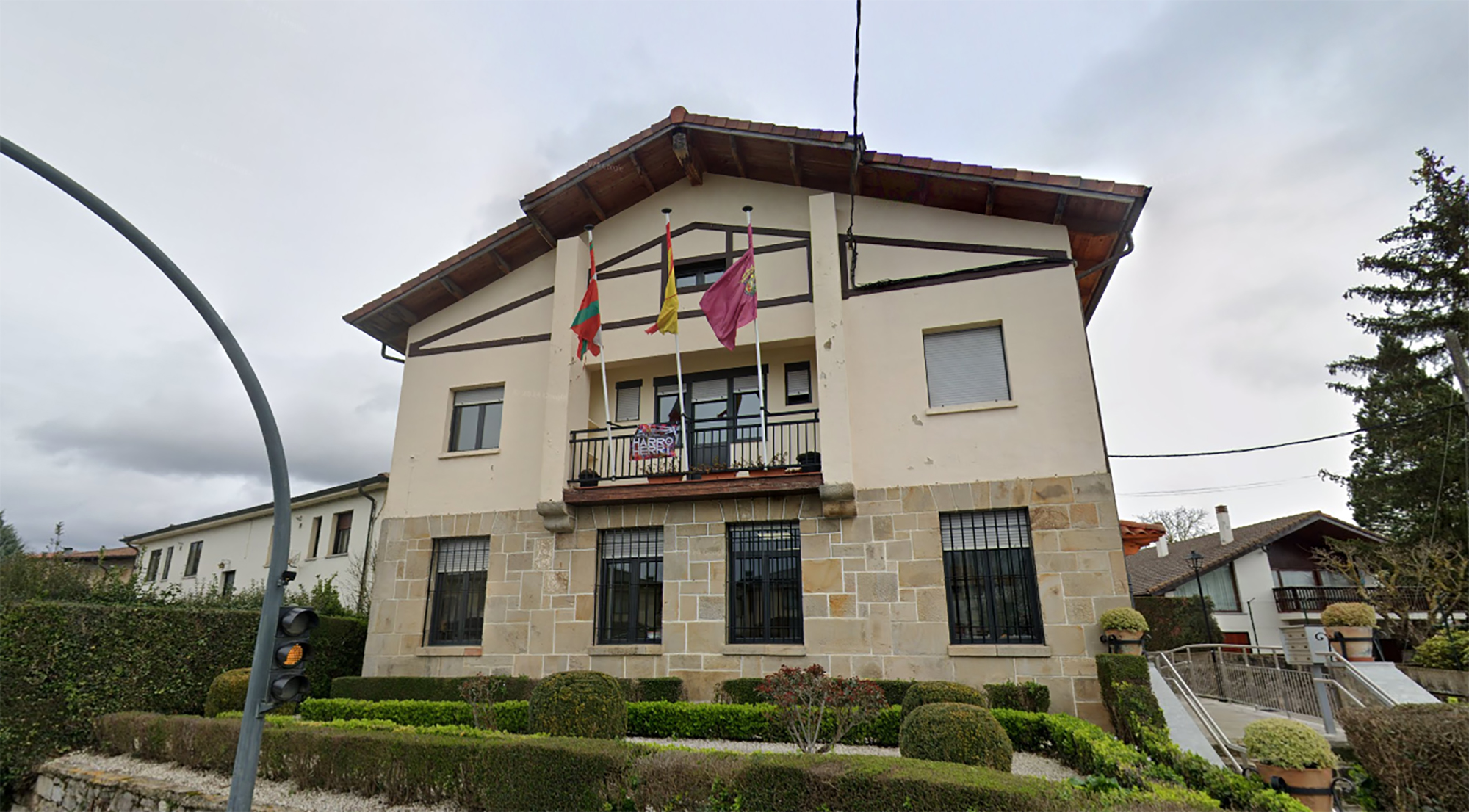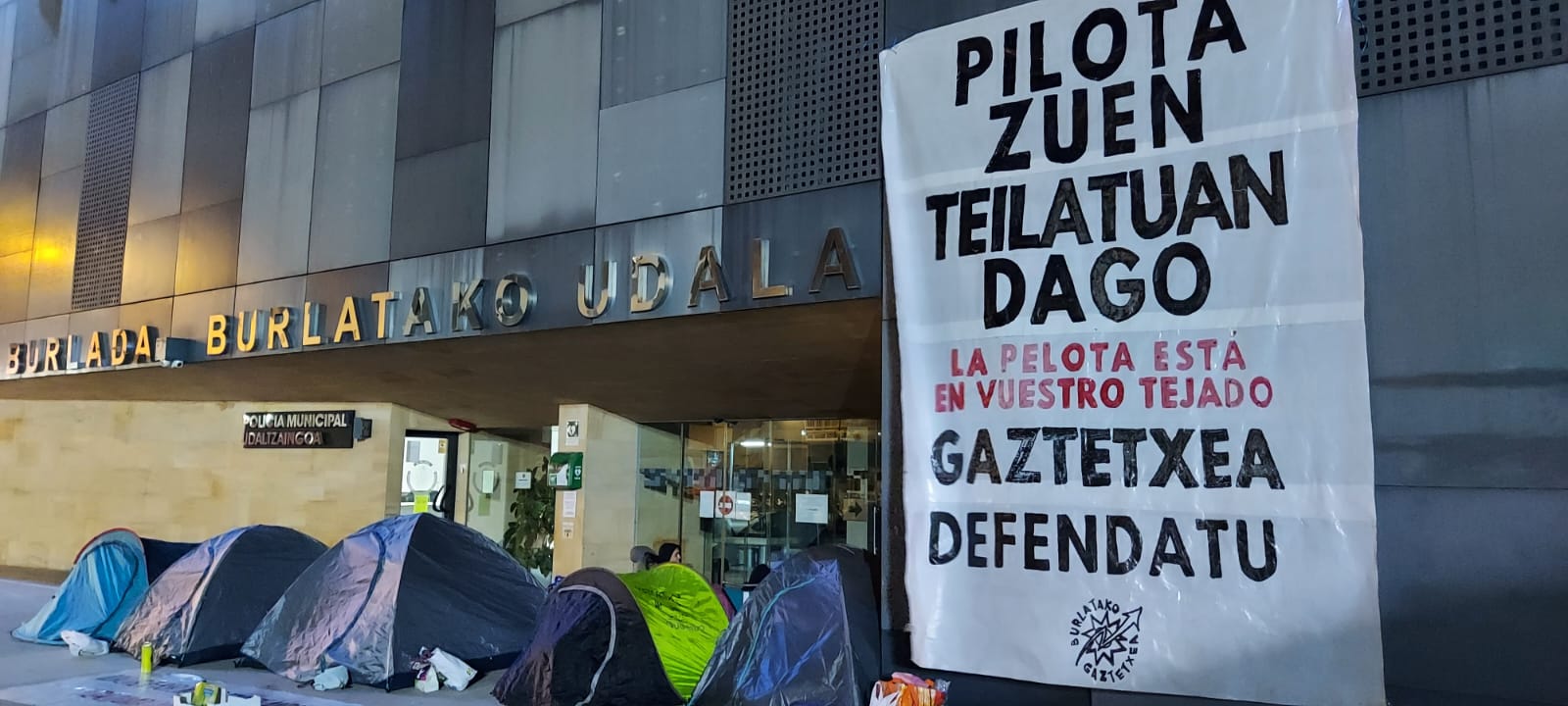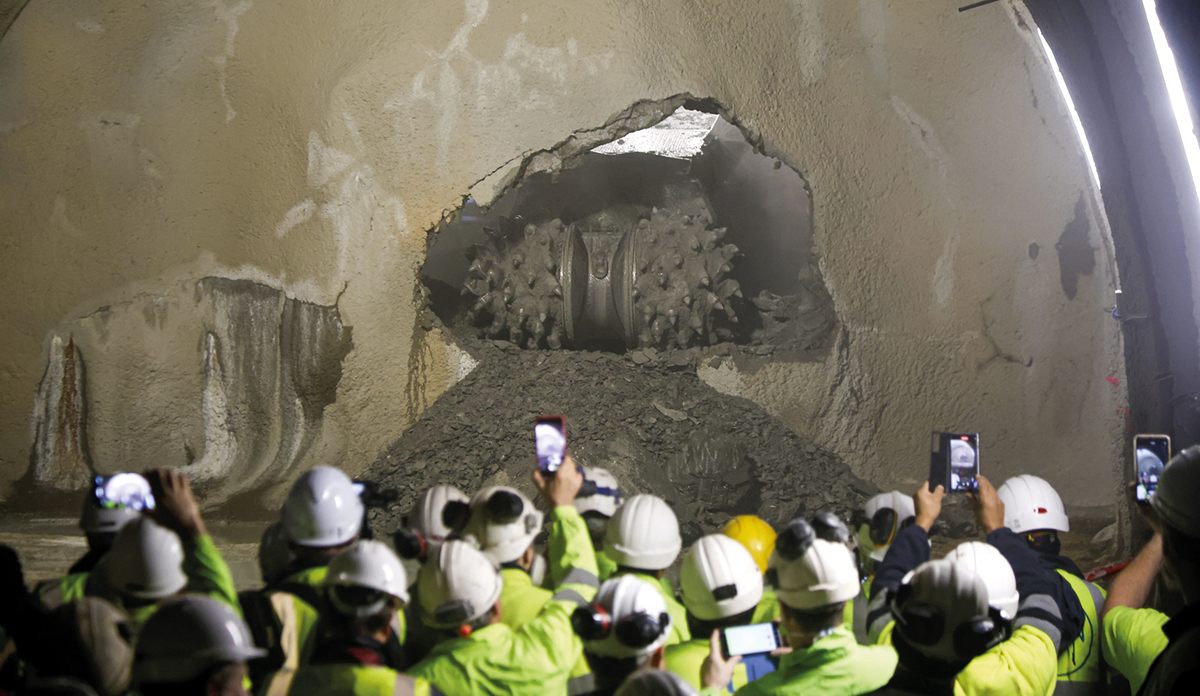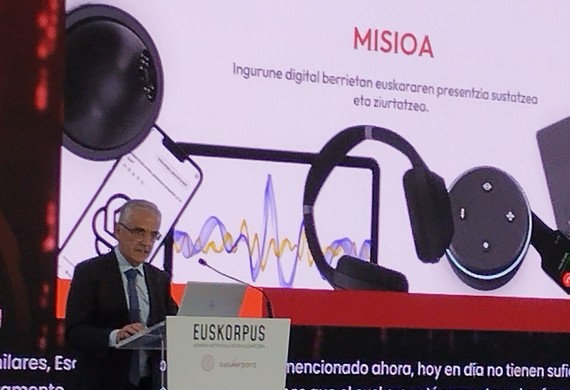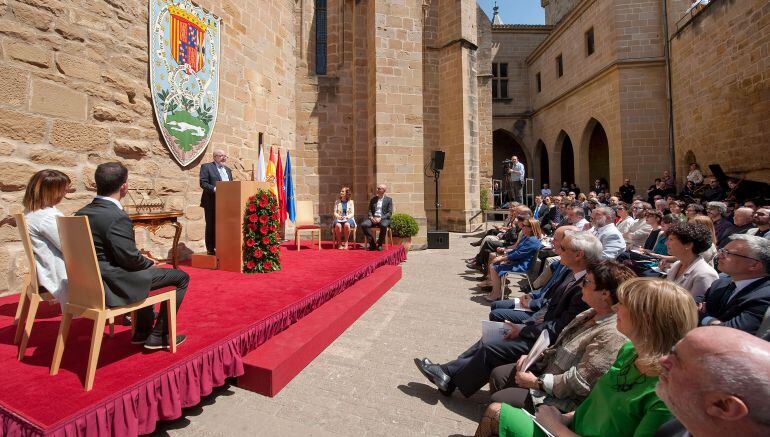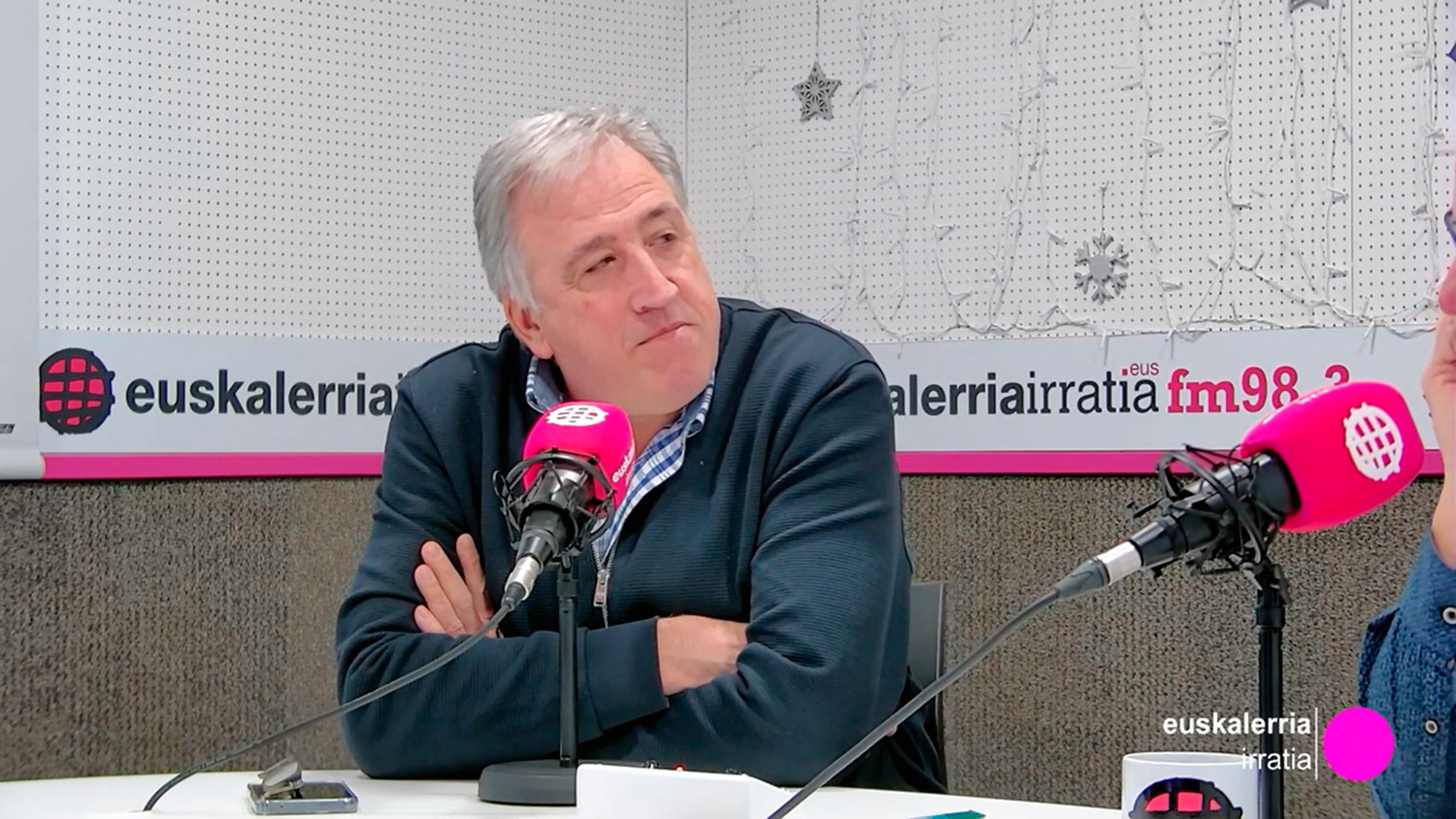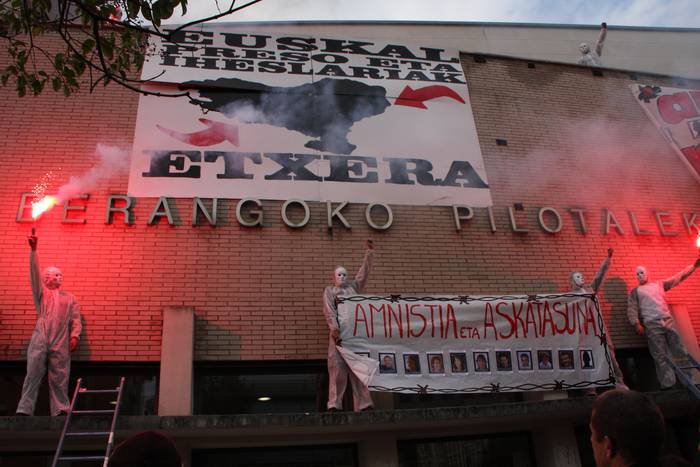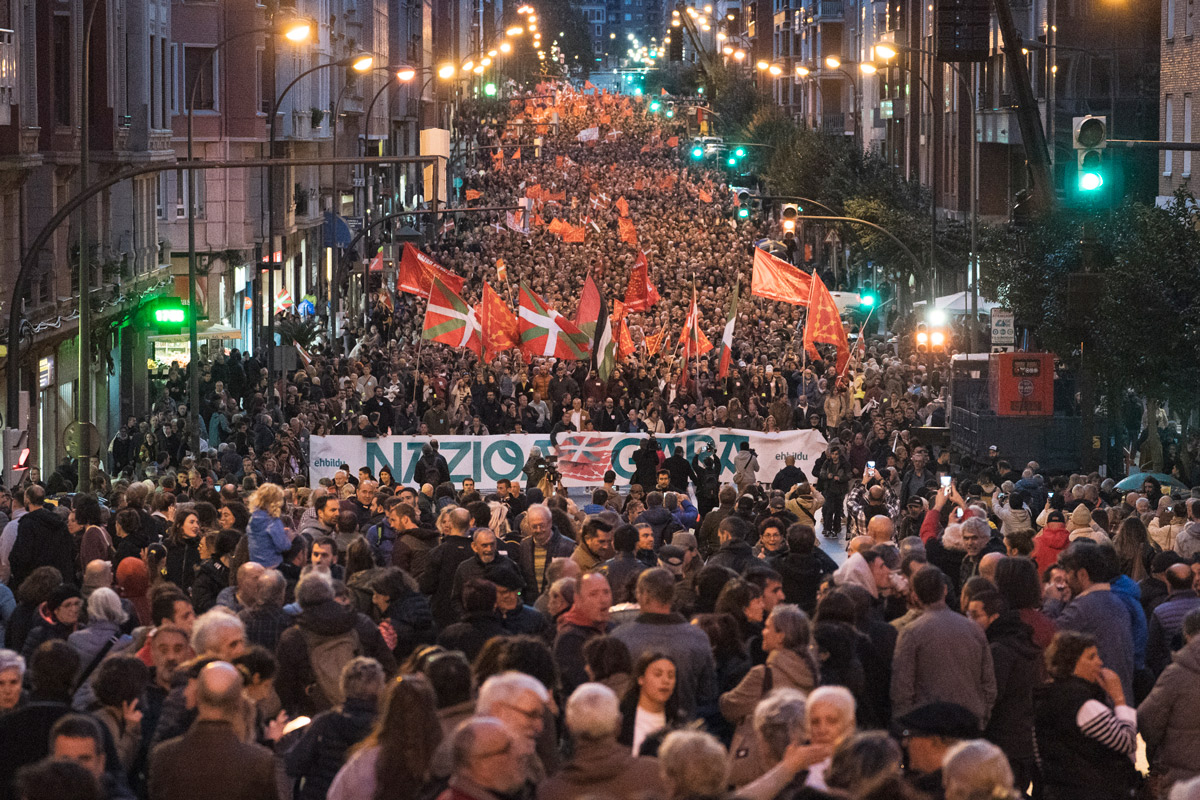Rethinking left Abertzale
- We live in times of reflection in the Basque political landscape. The Abertzale Left is immersed in numerous self-thinking processes. In addition, various popular movements are proposing from the base the way forward, analyzing internal power relations and changing organizational models. Young people are gradually gaining prominence, but what do they give importance to? What moves them in politics? What are the challenges they face? What issues do you care about?

Like one of the interviewees, the term “left abertzale” can also give rise to misunderstandings, as it is used to refer to two different realities. On the one hand, the Abertzale Left is a structure formed by three organizations (Sortu, LAB, Ernai) to which we will refer in capital letters and, beyond that structure, it is also used to refer to the movement of the left and wider abertzale. In this case we will write it in detail.
We have raised the report from this second understanding. We have gathered the reflections of dozens of members of the large Basque Country who identify themselves as members of the Abertzale left: Amaia Agirretxe, Kimetz Arana, Elorri Arin, Jone Etxeberria, Izar Mendiguren, Aiora Mujika, Ortzi Murua, Markel Ormazabal, Endika Pérez, Irati Sienra and Amaia Zufia. The report was prepared from live interviews with each of them for one hour. Of course, it is not a full picture of youth, but the reader will find some keys to understanding the current situation, new questions and proposals to move on.
How do we make revolution in the 21st century?
“I see the situation very demobilized, very cold to have the tradition of struggle that we have in Euskal Herria.” They are words of Irati Sienra (1990, Deusto). She started her student activity at the age of 15-16. Most of his militancy has done so in the youth organization and the feminist movement, and he is currently a member of ERNAI. “On the one hand, the possibility of going to the roots of the political conflict and on the other hand the neoliberal offensive that we live, I feel that we are looking at other peoples, such as Catalonia, Scotland, Greece or Latin America, without just going to do anything.”
“People don’t see it as an alternative to the Abertzale left.” According to Sienra, agents continue to organize the 1980s, doing their primary activity in meetings or small spaces, and although they may have the feeling that they are doing many things, they think they are doing little on the street.
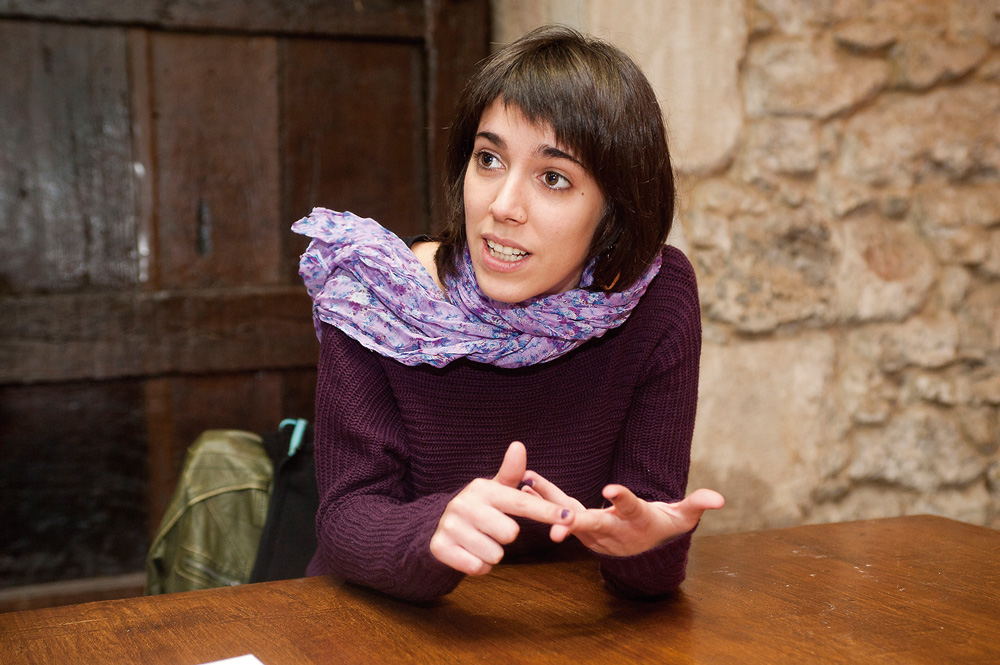
With the abian process, Elorri Arin returns. Born in Baiona in 1991, lives in San Juan de Luz. Segi started at the age of 15 and has since travelled several popular movements: Raises Neskatxa, the gaztetxe, EHZ and the Joxemi Zumalabe Foundation, among others. He recalled that at the time of the change of strategy with regard to armed struggle some members abandoned militancy because of the discrepancies that occurred. “The Abian process, its lagoons, seemed like a new breath.”
Their main concern is the passivity of the people. It seemed to him that at some time he reacted more. “In the face of aggression, I feel that we are immersed in individuality, that does not react with force. First of all, what is happening with immigrants, for example, nothing is happening here.”
“I see Euskal Herria in general in a quiet and submissive.” Endika Pérez (1988, Larrabetzu) began his career in the youth assembly and in the Gaztetxe with 14-15 years old, followed by Ikasle Abertzaleak and later Segi. He is currently a member of Ernai. He considers that with Zutik Euskal Herria the strategy only changed, but that in the discourse, in the organizational model and in the political culture the Abertzale left did not adapt to cope with this change. He has created new opportunities, but Pérez warns of the risk that the conflict will cease to be visible.
"The political conflict is distorted, now it seems that the conflict was framed in ETA's activity. We have not been able to maintain the political pulse, to situate the conflict in other ways, to maintain the political confrontation in force.” It seems to Pérez that he has sometimes been taking steps depending on the enemy. In his view, in the early years of the initiatives, some may make sense for change and for not reversing, but they have been too long. “In recent years we are also making political statements that make no sense.” Asked for example, he returned to the troika representatives' visit to Bilbao in March 2014. “These come and we are imperative afraid to see what’s going to happen. We do not want any expression of political violence, because that is an element of a phase that we want to leave behind, without taking into account that when the Troika goes to Greece, to Germany or through Europe the cities end up in flames, that Euskal Herria is not a bubble and that some references are very pedagogical on a global level.”
“I see a lack of illusion and involvement, related to the lack of beliefs for people to change things in themselves and in the community.” Izar Mendiguren (1988, Llodio) started her career as a student at the age of 16. Currently, it does not work in any structure and works mainly on the perspective of communication in popular movements. “However, we have exciting projects in the head and in the hands, what happens is that we need empowerment.” It considers that attention should be paid to ensuring that the social base does not remain in the background, since “the system for citizens not to be interested in politics offers a thousand resources in free time”.
“The Abertzale left has a tendency to reach some point and adapt through a change. But today you can't do that, because the changes are very rapid." Markel Ormazabal (1982, San Sebastian) started his student career at 14-15 years old and has since participated in numerous conflicts: in the gaztetxe and okupación movement, in the years of the founding of the Pirates of San Sebastian, and in the youth organizations Jarrai, Haika and Segi. He is currently engaged in the Abertzale Left and popular movements. “I’m worried because I think the Abertzale Left is not responding to the changes that are happening in society as a whole.”
“More and more people say that the cycle change of the last 30 years may be the size that occurred at the time of industrialization. We are going to change the pillars that until now were common and what comes to us is inconceivable, which is why it requires permanent reflection, permanent relocation and a political waistline”, says Ormazabal.
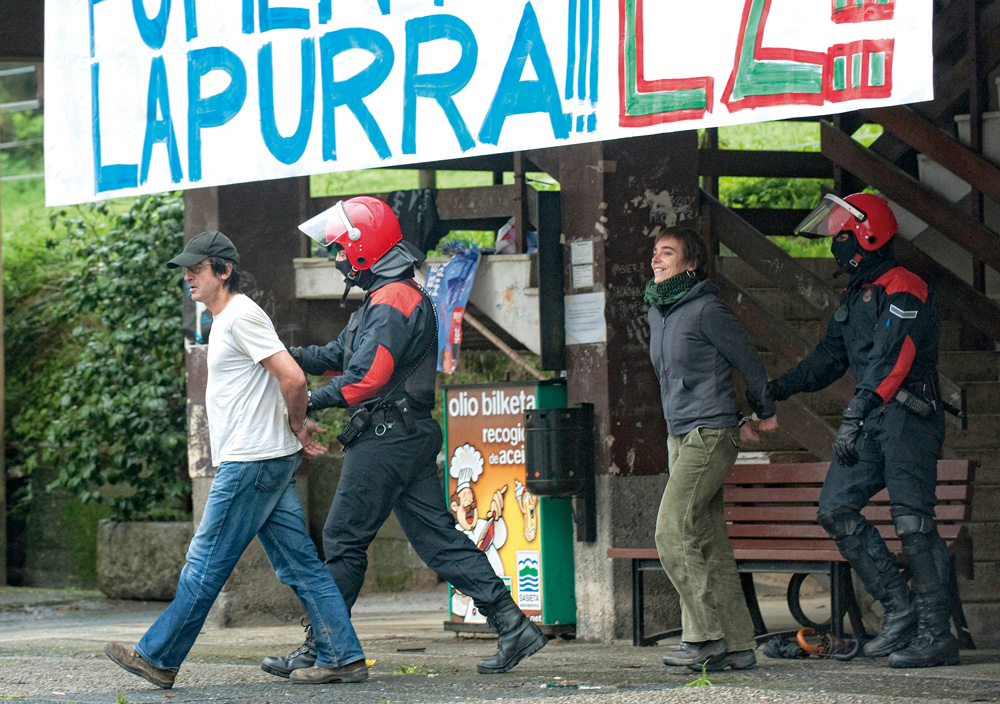
Jone Etxeberria (1979, Ordizia) believes that the key is to revive society. It started at the time when Itoiz's cables were cut, with 16-17 years in the assembly against the TAV. After seven years of absence, he went to ANV's lists and saw that his place was that of the Abertzale left. He is currently a member of Sortu.
Considers it a priority to show that there is an alternative to neoliberalism, although it clearly states: “We are losing the battle of ideas.” The strength of Hispanocentrism stands out, among other factors. “In most of the media of Hego Euskal Herria, as in ETB, the data here are always beside those of the Spanish State, health, unemployment, education, industry, services… we are not so bad promoting thought, while here we are also enriching the rich and the poor we are impoverishing.” It seems to him that they are also defending the status quo. “We can always be worse and, therefore, why get up?” he asks.
Concerns about lack of cohesion
“I am concerned about the attempt to lose radicality in the name of diversity.” Amaia Agirretxe (1991, Azpeitia) started moving at the age of 16-17 and joined the student movement at the university. He is currently a member of the youth movement and the feminist movement. It considers that plurality and radicality are compatible and people should be encouraged to think for themselves. “I am concerned about rigidity and how we are managing division, dissidence... To deny what is happening, to delegitimize the opinion of the other... The truth is that I see a lack of cohesion.” In his opinion, the Abertzale left has to be plural, “because we are like that”.
“It is hard for us to move forward because we are afraid of contradictions and criticisms. To move forward we have to release this knot, because now we want to move from the positions of resistance to the offensive, to build that Basque state from today.” Irati Sienra believes that the struggle is liberating and that when it comes to managing the contradictions, the members of the Abertzale left are blocked. “This is a big problem.”

“First we have to fix the house, it seems we can’t move forward, we don’t end.” Aiora Mujika (1987, Anoeta). He started at age 15 at gaztetxe, then at Ikasle Abertzaleak and at university in various organizations. It is currently working in the field of communication.
Taking advantage of the fact that the strategy has been related to the turn of the transatlantic change, he believes that in this change there were cracks at the bottom of the boat, tensions with names and surnames, and that work must be done on its resolution before the cracks deepen.
“It seems to me that there are things from the past that we have not completely liberated and that we have not yet given birth.” Amaia Zufia (1990, Pamplona). He started moving, and at 15-16 he entered the student movement. Currently a member of Bilgune Feminist. “We are afraid to lose our status and that prevents us from expanding our perspectives and establishing partnerships in other areas, with people who can be part of a process of independence.” Taking advantage of the fact that feminism has worked on the concept of interdependence, it also sees the subjects of the fundamental transformation with their mutual needs and says that nowadays there is a lot of mistrust.
“Sometimes I think that forms don’t take too much care of themselves. The procedure and formalities give legitimacy to a process. How do you allow it? The way we do it. We often pass on the opposite of what we demand. For example, the Via Vasca. Despite collecting many reflections previously made, it did not open up too much in the movement, but was presented in a context of electoral campaign. This smokes.” Ortzi Murua (1995, Azkaine) began his youth activity after the dissolution of Segi, at 16-17 years old, although he previously worked in gaztetxe. He is currently a member of Aitzina, among others.

Caring for relationships
“At the time of militancy, it would be important to take care of our relationships. Sometimes we have cold meetings, farewell and past. I miss that closeness,” says Elorri Arin. In Azpeitia, Amaia Agirretxe also shared a similar reflection: “You also see nice attempts, proposing rounds when it has never been done in the assemblies, proposing other formats instead of a meeting, etc., but we still have a lot of work to do. For example, if at the end of the meetings the people who have participated in them are not able to talk about the everyday, it is difficult to get something very good from there.”
Jone Etxeberria speaks clearly about the militancy model. "What do we have to do to move the independence strategy to our peoples? What does it fight to resist? And how do you fight? In the latter, we have a huge deficit. Above all because we are in the resistance and the profile of our social base and militancy does not fit the challenge. We have a very resilient, not constructive profile. It is normal and it is not the responsibility of the militants. What happens is, let us be clear that we have to make a transition, but we've already spent six years on that, and it's time to make important changes." Some of its members will have to be recycled and others will have to act in other things. According to the Sortu leader, many of the militants who have so far been in the centre will have to move to the periphery and vice versa. "It's a big change and a big responsibility, take the backpack from the history of the Abertzale left and move forward. How do we become an expert militant in conflict resolution to become active at LOMCE, TTIP and national construction?”
“We should also raise the mobilisations by discussing what we want to achieve,” says Amaia Agirretxe. We keep some demonstrations yesterday, we reject others in the name of tomorrow, but in the meantime we don’t think about what we want to get out of what we are doing.” He believes that the members of the popular movements should know each other and form each other, hence future alliances, and is therefore very pleased to have participated in the Bor Bor (k) course of the Joxemi Zumalabe Foundation.
Leaving the comfort state
“Since being in Trintxera, a great opportunity has been opened to immerse yourself in the village and make proposals with the new situation. Although I think we have to define the course, I think there is a strong salsa in Euskal Herria.” Kimetz Arana is a native of Trapagaran and has been a member of the Abertzale Left since the age of 14, always at the local level. The student movement, the youth movement and the political structure. Currently, it is mainly dedicated to the Sortu group of Trapagaran and the network of EH Bildu, uniting the municipal dynamics and the street, from one initiative to another. “Change has been so great that our structures and people were not ready.” In his view, the key is to know who directs the Basque Left to his political proposal in the Basque Parliament.
“If you don’t know which people you want, you can hardly move forward.” Markel Ormazabal considers that the lack of definition of the project weakens the project. “We have to imagine which people we want. There have been many sectors that have done so, from feminism, anti-desarollism, etc., but in general we lack to give a collective sense to all these representations”.

The implementation of a transformative independence strategy is, according to Jone Etxeberria, one of the main challenges. Their determination and landing in the villages. It attaches importance to the word “transformative” and is satisfied because this is reflected in the Abian document. "There are many people on the Abertzale left in many fights, unstructured, working on the periphery. The Abertzale left has not fed that in recent years, and to start feeding it, what is the umbrella going to be? A transformative independence strategy,” he says.
Arana wonders whether the Abertzale left will create in the keys to social change the independence that the Basque State will be building or not. “Such a project can achieve the consensus of most people in the Basque Country.” It argues that Basque citizenship must be able to advance social justice and equality, more transparency in institutions, more participation, more deepening democracy. “It is true that we are able to articulate that in our peoples, not only with our proposal, but by building links with the sectors, organized and unorganized, that can share that project.”
“Unemployed, immigrants, oppressed … let us assume their identities and express that this is their people, that their history is the history of the Basque Country”. Kimetz Arana sees that a broad sector shares “the identity of the people below”, the origin of the identity and the origin of the identity, votes that are given in the keys to change. Arana has considered that the Abertzale left disregards ignorance because nationalism is weak, but that if in Bizkaia the Abertzale left wants one day to win the PNV, it will have to make its proposal to unite all these popular sectors, “because with that we are the majority”. Believe the same with other countries. “We need a proposal that makes the underlying sectors feel comfortable and join together. In the medium term, this can lead Euskal Herria to freedom.”
Jone Etxeberria believes that peripheral struggles need to be transferred to the center, although it will not be easy. “How can we introduce the axis of independence into a concrete feminist struggle? Or in the transformative social economy? We must use the Basque State as a tool to transform this current situation. We will have to work in many social movements that today we do not have relationships, being honest, humble and working people, with colleagues and colleagues who come from within “Here in Spain”.
“The tendency towards individualization in society is also entering into our militancy and political spaces, before which we must disseminate the demand that processes be made collectively,” says the nonsense Amaia Zufia. “In a letter we will be liberated or here we cannot be free. Care is essential in our society, but I see a hypertrophy of care. It is linked a lot to self-care and in its name many things are done, not doing many things collectively”. He thinks there's a knot there. He considers that the team and the project, together with the individual, must be cared for.
In his view, some concepts that underpin the projects should be redefined from multiple perspectives, such as peace, nation, people, democracy and conflict. “Although they are very basic, they have been defined very unilaterally and why not say so, sometimes very patriarchally. “Peace, for example. It is clear that peace cannot be talked about here when we have a lot of deaths a year, when we are systematically assaulted and raped half of society. What is peace?” he asks. Zufia sees that if adherence to the nation is to be assumed by more subjects, it is necessary to broaden understanding and define it from the margins. “Peace, for example, is going to be a complex process, related to human rights, to the transformation of power relations and that will contain many elements.”
“No one is essential, but we are all necessary,” says Izar Mendiguren. We have to be finer in the management of the different levels of commitment so that they do not cease to be commitments.” In addition, he believes that the potential of many relationships is not being exploited. “Where do they meet age 55 and 18 at a time? Is there room to promote these partnerships? There we are losing a lot of wisdom.”

“We can’t wait for the PNV”
According to Kimetz Arana, on the left Abertzale there is a large complex with the PNV that comes from the times of Telesforo Monzón: “The Abertzales have to go together to Maltzaga and we have been waiting for that moment for decades. Reaching out to the PNV, thinking that if we ever go into a confrontation with the state, it necessarily has to be together.”
"I believe that we cannot be continuously waiting for the PNV, and that this is one of the reasons for the current loss of strength. Always measuring the steps, performing actions in collaboration with the PNV”. In view of the Catalan process, he considers that this scheme has been reinforced. “I am very pessimistic about this issue, seen more than ever the PNV, the main manager of the institutional structure of the CAV and Navarra. It’s hard for me to think that you’re going to want to change that.” In his opinion, it is time to put forces in the country building from the left, working on the leftist sovereign alternative, which would weaken the position of the PNV and lead that party to work if it were compromised.
According to Irati Sienra, the PNV does not want a Basque state, as it has its economic interests in the Spanish State. “And if they wanted to, they would want to multiply wealth, just when we want the opposite, social justice for the citizens; therefore, today the PNV will not join the independence process.”
Immerse yourself in the villages
“We have been among us, we have not been immersed in our peoples. We have to change militant practice. We have to be comfortable in our villages. We must also know the needs that we have not felt. We have to walk down the street with slippers.” Kimetz Arana states that in Meatzaldea and Ezkerraldea there have been many rounds of discussion on this issue in recent years, and that they have produced results.
“We’ve gotten used to running campaigns that came from the top down. If we want to build peoples, we need an autonomous model of militancy, that develops its resources, that has the capacity to make decisions within the agreed lines. This requires putting strength and resources in the militancy, training and personal strengthening in the practices. All structures should be adapted if deemed appropriate.”
Arana has taken the figure of the liberates as an example of this. “If, until now, they have mainly carried out the function of information transmitter, from now on they must assume the role of dynamization of the counties, being people who provide resources to the people of the peoples”. To this end, it believes that members are needed who are familiar with the regions first hand and that the region is affected.
He believes that collective decision-making should deepen assembly, not to talk about great strategies, but to answer other close questions: “What will we do in our people next year? In Barakaldo what? What's in Sestao? How far do we want to go? What forces do we have? What are the actuators? What scope does ideology create? Where can we take another step?” In his view, the militancy framework of the Abertzale left should be the same.
On the occasion of 8 March in Azpeitia, under the title “Many women, many realities”, numerous associations working on feminism in different ways organized a round table in which they shared responsibilities. Amaia Agirretxe remembers that he learned about his work and that it helped him to sew the networks. “There is a willingness to work with the people in the neighborhoods to get closer to the people who are going wrong.”

“As a challenge, to strengthen the critical mass, to unite, to re-illusion the struggle, to believe in one’s own capacities, the word and the decision is ours,” says Elorri Arin de Donibane. “We must continue to fight, not only in the political conflict, but also in other areas: feminism, Euskalgintza or environmentalism, to name but a few.”
Adapting political culture
“Now it cannot be debated, there are no conditions, that is, after the decision we will discuss it. We have come from the underground and we have recognised it for many years, but now that the situation has changed, we have to take great care of the forms. If you build spaces for debate, even though I have a different opinion on a subject, if you see that most people don't think about it, I will accept it and defend it. But if there is nowhere to talk about a topic, it makes cohesion very difficult.” Aiora Mujika feels that there is much to be improved in this area.

Izar Mendiguren is concerned about restricted forms of participation. “Many people are left out because the modes of participation that arise in the initiatives are not well integrated into the current model of life, for example, the popular assemblies.” Depending on the time, he indicated that they could not turn and asked whether there was any force to receive the contributions of these members. Do you put resources in place for this? Has it been reflected in the groups? How can participation become more attractive?” asks Amurrio’s. You have been applauded that in different places you are experimenting with videos and new formats.
"I worry that people don't see the common sense of militancy on the Abertzale left. What is being a militant on the Abertzale left today? What job does it mean? If you have no answer or “nothing”, people are looking for other ways, we see that people are not going to wait,” says Donostiarra Markel Ormazabal.
It seems to Ormazabal that the younger generations on the Abertzale left today have had a transmission gap. "Do we know what the Basque left has been?" What is it? Where does it come from? What are its principles? Do we know their story? I have many doubts, and when we are left without transmission, we are left without a project.”
“We must strengthen the definition of the political project and the political culture, we must recover the political initiative, we must create situations for change, but above all we must internalize that changes are taking place and that we must understand well and know how to act well.” In the opinion of Markel Ormazabal, the road is the collaboration of those who work for transformation. “We are not the only subject for transformation, there is more, and the fruits will come from the collaboration between them, but in them we have to influence, and for that we need the initiative”.
“Everyone can have an appearance with their values, but if they do not do so in practice, I see great hypocrisy.” Elorri Arín believes that militancy should be transferred to day-to-day commitments. “I think this awareness is not widespread.” In this sense, the Tierra Libre movement in the process of creation seems to him an interesting experience.
Completing the identity of the lower
"Apart from the limitations of the institutions, we did not achieve the majority in the elections. At the same time, the alternatives do not have the capacity in the micro to respond to the needs of the whole society. I believe that we are in a position to take this debate to another step. Are we not interpreting new changes with the old words we have had so far?” Ortzi Murua says that the book l'art de la revolte contains this idea. “I believe that there are conditions for the micro experience to be able to weave networks and position itself in a process of liberation from the left on a global level.”

It attaches importance to the international referents and believes that transformative independence should not be confined to the cases of Scotland and Catalonia when looking abroad, but should also highlight those who work worldwide for the sovereignty of citizens, such as the ZAD project carried out in Brittany against an airport. “We have to feel those referents like us, because they are interesting reflections.” At a time when self-decision is becoming one of the general ideas of the Left on a global level, Abertzale sees them strong, because they bring that idea into DNA. “We have to align ourselves with that general discourse.”
In his opinion, when talking to people, when talking about the capitalist system, one cannot say that capitalism has won the war, that being so far away in the relationship of forces, another path is chosen, as if it had given way. In his view, it should be made clear that as a system it is not viable, that the crisis is going to the limit and that it does not allow societies to structure well. “It’s not just saying that we don’t agree, but that you need another model, we’re going to do it together.”
He sees that concrete steps need to be taken to achieve this, to seize the opportunities and, for example, on the issue of the privatization of Kutxabank, Murua does not understand how the issue of ethical banks has been used to raise the issue. Coop57 cases, a powerful ethical bank in the Basque Country, which on the website you can easily see how to send the money there.
“We’re becoming like everyone else, that can’t happen,” Kimetz Arana clearly says. “Election campaigns have to be based on communal work and people have to talk. We have working groups in the village, they have to explain the project, and not bring trucks from outside with our logo, or put on the tram the photo of our candidate.” It argues that the microphone should be given to the citizens, which means strengthening the groups.
“In Euskal Herria, the people on the left of the PSOE believe that sociologically we are the same people in the Left Margin,” says Kimetz Arana. He recalls that eight years ago they wanted to grow politically and that in Trapagaran they came to the conclusion that in order to strengthen the national struggle they had to enter into the social struggles of the neighborhoods. “In the place where the PSOE was founded, in the neighborhood of La Arboleda, despite knowing that we were going to knock down many walls, in these years there has been an approach to our initiatives, working groups have been created with its members, with proposals, with concerns. Four years later, in the elections, Bildu has gone from being the third force to being the first major force in the mining districts, precisely in the less Euskaldunes”.
From feminism to change
“I am concerned about the commitment that will be made in the new strategy with regard to feminism. I feel that until now there has been a hierarchization of the struggles on the Abertzale left and that some struggles have devoured others.” Amaia Zufia wants a subject to be formed to fight for the root conflicts that are taking place in Euskal Herria, instead of escalating them. “It takes away various gender oppressions and oppressions and to subvert it one has to put feminism at the center of the political proposal, this requires tools inside and outside.”
“Feminism has a lot of strength in the youth movement, there are feminist groups in almost every village.” For Irati Sienra, this demonstrates the great concern that exists around feminism, which from now on will influence popular movements.
“Illegalization has been used as an excuse not to open some debates.” Sienra referred to power relations within the Abertzale Left rigorously. “Repression has also led him there, but the spaces have had a very masculinized militancy, with directions full of men, men will decide what to do, as age advances, expelling women from the militancy camps.”
In recent years, he has noticed a great change, especially in the discursive aspect. He believes that each organization should work internally to create spaces for this. “There is resistance on the part of people to address this issue.”
According to Sienra, the women on the left Abertzale need their own spaces, and they have to make alliances with abertzales organized by the feminist movement, especially with Bilgune Feminist. “He has worked hard for many years to feminize the Abertzale left, and that must be acknowledged.” In addition, men must create spaces where to reflect on their privileges and how to give up on them, to work masculinity in feminism.
In the opinion of Amaia Zufia, the men of the Abertzale left must be willing to share power, “if they are not to be taken away”, and see that to be a feminist subject a collective internal process is needed. “We have to analyze the influence of the patriarchal system, know the political proposals made by feminism and make a conscious analysis of the relationships to see what we reproduce.”
Territoriality beyond the map
From Trapagaran Kimetz Arana sees very little connection with the territory we call the Basque Country. “We are divided, the influence of Basque culture in our cities is small, we do not build territoriality beyond a map. Those of us who are independentists must combine it: Saretu, all the people who are in a situation of exclusion, in a project and transmit the closeness with Euskal Herria, and propose the Basque Country as something that, instead of conditions, unites the project”. A Galician or a Senegalese can feel in Bilbao what a Basque feels in his mini-sentence in the Left Margin.
“I am quite angry with the treatment of Ipar Euskal Herria. At the time we were militating in Segi, clandestinely, and when we met with Hegoalde's colleagues. The situation was very complicated and we met once a month, saying we were a national institution.” Today, in legality, it hardly sees relations. “It’s not the relationship I hope for, we’re like ten years ago.” He sees that political speeches only speak of Spain, as did the last one by Arnaldo Otegi. “And in France what do we have? We have no conflict? It’s a subject I’m passionate about.”
“There are good cases, for example in EHZ, we have bridges with Donostiako Piratak and other agents, but how is it possible that there is no close relationship between the institutions of the Abertzale Left?”
At the same time, the Abertzale Left is being structured in Ipar Euskal Herria, after the constitution of Sortu and the reflection that it was a bad time in Iparralde. Ortzi Murua's thought goes a long way. How do you join effectively?
Confrontation is needed
"How does revolution take place in the Basque Country in the 21st century? ", asks Endika Pérez. In his view, the Abertzale left must unite the accumulation of forces and the confrontation between parties and political parties. “The relationship model, the consumption habits, the militant commitment, the Abertzale left has to create a new revolutionary identity to give answers every day to those who want to fight the system.”
“We have to represent the shock,” says Larrabetzu. “We changed the strategy to win, not to integrate ourselves into the system. We want another model of society, and that necessarily requires confrontation. We cannot be everyone’s friends, because there are different projects here.” In their opinion, the confrontation has to go out into the street, multiply the actions of disobedience in those issues in which they disagree.

“The Abertzale left lacks action,” says Markel Ormazabal. “Action is what generates situations of change.” In this direction, he refers to the success of the popular walls, remembering that at one point they came to imagine that the arrests could be stopped. “Hundreds of bodies were piled up to protect those who would be detained, many of them because we came to believe that we could stop the arrests; when we stopped imagining that, it has lost strength.” For Ormazabal, representation gives strength to overcome reality. “When the Ertzaintza dismantled the Askegune of San Sebastian, it was the feeling of colleagues: We were 800, but next time we're 3,000, and we can be in this village 3,000, they're not going to be arrested."
Time of blockade overrun
“Euskal Herria has many years of travel, popular movements have too much self-organization, and since we are a small people, it is easier to create synergies. Even if you're humble, people are willing. The Abertzale Left has been weak, but the environment? If there are conditions outside, we may have that apathy point inside the house – says Endika Pérez. When you pose nice dynamics, people respond, you have to touch the right keys. We have to work the subjective conditions, we can't stop dreaming."
“Euskal Herria is very rich in projects, the popular movement has brought enormous challenges forward,” explains Izar Mendiguren. “It is the nature of a people and we have to make strength there. We have to remember that many basic projects have gone ahead in auzolan, such as the ikastolas movement.”

“Perhaps the generational change in some places could come well, I see it in the field of communication,” says Aiora Mujika. “He who has been in this field for a long time has customs and unintentionally uses formats. It may be very good in your work, but you also have to know how to see the deficiencies of yourself. Digital generations that have grown up with new codes think of other keys and we have to put the emphasis on the transmission of ideas.”
“We have to guess how to form a plural subject and it’s not easy,” says Amaia Zufia. “All subjects who want to be part of a process of independence must have a place to lay the foundations, influence, get this going and make decisions.” He believes that we must create spaces of confluence with joint agendas. "All of us who are working towards the transformation of this country need recognition and dialogue. It may not be possible to create a single confluence point that encompasses all fields, but more sites are needed and multiple subjects are recognized.”
"How does the left gain political credibility in the agents who are once again working for transformation? On the one hand, forgetting that it is the only one that has initiative and, on the other, putting the accumulated capital over all these years for the benefit of the forces ready for transformation,” says Ormazabal.
“We have too many academics and too few actions,” says Irati Sienra, “we have to go out into the street and do things; the Abertzale left knows how to do it.”
“In recent years the movement has been weak and in the youth movement we have also put a lot of strength in the response to the aggressions. However, we are working to reactivate the youth movement and it is being a fairly productive process,” says Irati Sienra. In their words, the media sell that young people are not linked to the struggle, but that is not the case. “The youth of Euskal Herria is very plural, with very diverse ideological currents and are organizing a lot of agents to make convergences, for example, the youth assemblies and the gaztetxes are reflecting very interesting about their functions. We are building alternatives.”
“We have to take back strength and be honest with each other, with less appearance, because we want to do things. For all that has been done, we must continue to fight, and we must believe in it again,” says Elorri Arin.
“We have changed strategy, it has been hoped that some steps will be taken by the states, they have not done so to our liking, and there the Abertzale left has lost a lot of strength. Now I see enthusiasm with many things – says Arin – “OK, the struggle has not been interrupted, it has been a parenthesis.”
Koalizio abertzaleko hiru ordezkariek ohar baten bidez euren "frustrazioa" adierazi dute proiektu fotovoltaikoa ezin gelditzeagatik: "Egoera horren aurrean, ez gara legegintzaldia amaitzeko indarrez sentitzen". Proiektu honi ez! plataformak salatu du EH Bilduren... [+]
Arratzua-Ubarrundiako "Proiektu honi ez!" plataformak adierazpen hau kaleratu du, udalerri horretako EH Bilduko hiru zinegotziek dimisioa aurkeztu berritan. Izenburu hau darama testuak: "EH Bilduren moketako politika edo Iparra nola galdu".
Arratzua-Ubarrundia (Araba) herriko EH Bilduko hiru zinegotziek dimisioa eman dute Solariaren zentral fotovoltaikoagatik. Hau da hiru zinegotziek, Txetxu Zengotitabengoak, Laura Sanchok eta Javier Ruiz de Arkautek, herritarrei zuzendu dieten agur mezua.
EH Bildu agintean dagoen udalak gaztetxearen etorkizuna ziurtatzeko aterabide bat adosteari "uko" egin diola salatu du Burlatako Gazte Asanbladak. Beste hainbat gaztek udaletxe kanpoan kanpatu dute, eta goizean zehar bertara hurbiltzeko dei egin dute.
Mundua "oso azkar" aldatzen ari dela azaldu du Arnaldo Otegik, militarismorantz eta autoritarismorantz doala, eta norabide horren aurkako jarrera duela koalizio subiranistak.
Satorralaia plataformak Donostiako Metroaren Mirakontxa-Easo zatiko lanek “%164ko gainkostua” izan dutela salatu zuen joan den astean, eta, horren harira, EH Bilduk gainkostu hori argitzeko eskatu du, Eusko Legebiltzarrean erregistratutako galdera sorta baten bidez.
Euskorpora elkartearen eta Euskorpus proiektuaren abiatzeak hautsak harrotu ditu. Pello Otxandiano EH Bilduko Eusko Legebiltzarreko oposizio buruak Euskorpusena akatsa dela uste du, "ezjakintasuna edo estrategia klientelarra". EH Bilduk galdera sorta egin du... [+]
At the beginning of the month he did III. Congress in Pamplona. It is said to be the “ordinary congress” that serves to draw “non-ordinary conclusions”, or at least that is how they have received Zutunik in the paper, proposed by the leadership and unanimously approved... [+]











